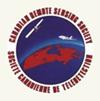利用谷歌地球引擎和半监督生成对抗网络评估森林初始烧伤严重程度
IF 2
4区 地球科学
Q3 REMOTE SENSING
引用次数: 0
摘要
初烧严重程度的测绘和监测是森林管理和景观恢复的重要方面。近年来,监督学习在评估火灾后森林状况方面取得了很大的成功,但需要大量的标记样本来进行监督学习的训练。然而,由于可获得的标记数据的限制,监督学习在遥感领域的实践往往是困难的。在谷歌Earth Engine (GEE)平台下,提出了一种基于生成对抗网络的半无监督图像分类框架,用于有限样本的烧伤严重程度评估。生成模型可以生成看起来像真实样本的额外对抗性样本;因此,利用生成器提供的额外训练数据,判别模型在烧伤严重程度评估中获得了更好的分类能力。以美国加州北部11起森林火灾为研究对象,进行了详细的评价和对比实验。实验结果表明,我们的方法明显优于其他两种最知名的方法。本文章由计算机程序翻译,如有差异,请以英文原文为准。
Leveraging Google Earth Engine and Semi-Supervised Generative Adversarial Networks to Assess Initial Burn Severity in Forest
Abstract Mapping and monitoring initial burn severity is a critical aspect of forest management and landscape restoration. Recently, supervised learning has achieved great success in evaluating the post-fire forest condition, but plenty of labeled samples are needed to carry out training for supervised learning. However, due to the limitation of accessible labeled data, it is often arduous to put supervised learning into practice in the remote sensing field. In this paper, a novel semi-unsupervised image classification framework by using generative adversarial networks under the Google Earth Engine (GEE) platform is proposed to undertake the burn severity assessment with limited samples. The generative model can produce additional adversarial samples that look like the real samples; therefore, the discriminative model gains better classification capabilities in burn severity assessment with the extra training data provided by the generator. The detailed evaluation and comparative experiments are done in the context of post-fire assessment on eleven forest fires in northern California in the United States. The experimental results demonstrate that our approach significantly outperforms the two other most well-known methods.
求助全文
通过发布文献求助,成功后即可免费获取论文全文。
去求助
来源期刊

Canadian Journal of Remote Sensing
REMOTE SENSING-
自引率
3.80%
发文量
40
期刊介绍:
Canadian Journal of Remote Sensing / Journal canadien de télédétection is a publication of the Canadian Aeronautics and Space Institute (CASI) and the official journal of the Canadian Remote Sensing Society (CRSS-SCT).
Canadian Journal of Remote Sensing provides a forum for the publication of scientific research and review articles. The journal publishes topics including sensor and algorithm development, image processing techniques and advances focused on a wide range of remote sensing applications including, but not restricted to; forestry and agriculture, ecology, hydrology and water resources, oceans and ice, geology, urban, atmosphere, and environmental science. Articles can cover local to global scales and can be directly relevant to the Canadian, or equally important, the international community. The international editorial board provides expertise in a wide range of remote sensing theory and applications.
 求助内容:
求助内容: 应助结果提醒方式:
应助结果提醒方式:


